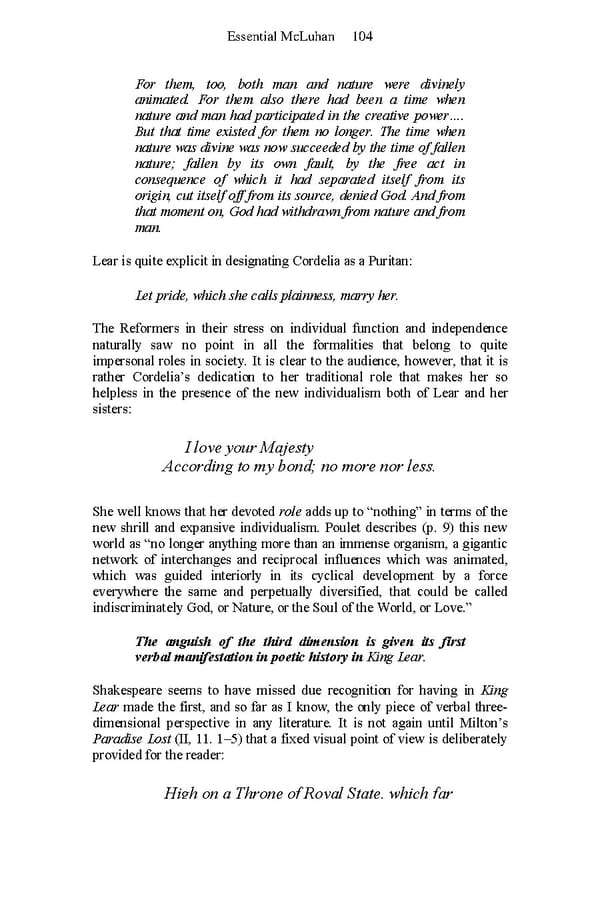Essential McLuhan 104 For them, too, both man and nature were divinely animated. For them also there had been a time when nature and man had participated in the creative power…. But that time existed for them no longer. The time when nature was divine was now succeeded by the time of fallen nature; fallen by its own fault, by the free act in consequence of which it had separated itself from its origin, cut itself off from its source, denied God. And from that moment on, God had withdrawn from nature and from man. Lear is quite explicit in designating Cordelia as a Puritan: Let pride, which she calls plainness, marry her. The Reformers in their stress on individual function and independence naturally saw no point in all the formalities that belong to quite impersonal roles in society. It is clear to the audience, however, that it is rather Cordelia’s dedication to her traditional role that makes her so helpless in the presence of the new individualism both of Lear and her sisters: I love your Majesty According to my bond; no more nor less. She well knows that her devoted role adds up to “nothing” in terms of the new shrill and expansive individualism. Poulet describes (p. 9) this new world as “no longer anything more than an immense organism, a gigantic network of interchanges and reciprocal influences which was animated, which was guided interiorly in its cyclical development by a force everywhere the same and perpetually diversified, that could be called indiscriminately God, or Nature, or the Soul of the World, or Love.” The anguish of the third dimension is given its first verbal manifestation in poetic history in King Lear. Shakespeare seems to have missed due recognition for having in King Lear made the first, and so far as I know, the only piece of verbal three- dimensional perspective in any literature. It is not again until Milton’s Paradise Lost (II, 11. 1–5) that a fixed visual point of view is deliberately provided for the reader: High on a Throne of Royal State, which far
 Essential McLuhan Page 110 Page 112
Essential McLuhan Page 110 Page 112